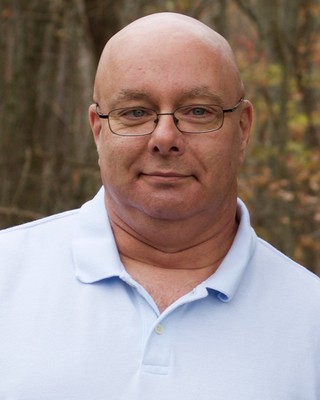
ROCKY HILL, CT — Steve MacHattie, LCSW and owner of the Charter Oak Family Center in Manchester, has lived experience - he began experiencing suicidal thoughts and survived his first suicide attempt when he was six or seven years old. “I remember being in my bedroom alone. I had a suicide plan that I thought would work and I tried to carry that plan out. After some amount of time, I realized what I was doing wouldn’t work and went downstairs to find my mother. The conversation I had with her, which simply dismissed my experience as a childish incident, was just the beginning of a battle with depression and suicide that would last for decades.”
Suicide does not discriminate. In 2022, to date 110,792 Connecticut residents have reached out to United Way of Connecticut’s 211 mental health crisis team via 988, Action Line and 211 Option 1 for mental health and addiction resources, which are provided thanks to a close partnership with the Department of Mental Health and Addiction Services (DMHAS) and the Department of Children and Families (DCF). These residents, your neighbors, were equally male and female, but nearly 12,000 were under the age of 18!
More than 40 years after Steve first experienced mental health issues, an award-winning mental health guide supported by United Way of Connecticut, Gizmo's Pawesome Guide to Mental Health, is available to support social emotional learning and mental health education. The Guide helps kids identify when mental health needs attention, daily activities for coping, and how to connect with trusted adults. Gizmo’s Guide was recognized by AMCHIP (Association for Maternal and Child Health Programs) as an “Emerging Practice” on their Maternal and Child Health (MCH) database. Gizmo’s Guide, featuring Gizmo and his fellow therapy dog and K9 First Responder friends, introduces youth to what can be a challenging subject for adults to discuss and for youth to understand, in an age-appropriate way, with the hope that they may keep and apply what they learn for a lifetime to help them stay healthy and safe.
Even though resources like Gizmo’s Guide were not yet available, Steve began his journey of recovery, little by little, with the help of those around him. He shares that his “struggles with my illness resulted in my illness often being my first reaction to life. If I had a bad day or week, depression was right there to remind me who I was. I feel like I internalized the stigma of mental illness from those around me. Even as things were going better and I progressed in my recovery, I still held myself back. I spent years, literally, hiding from people. My need to hide started when I was a child, though it gained strength as I got older.”
Shortly after Steve’s father passed away, he was struggling with suicidal thoughts while driving to a meeting. He pulled over and called 211 because “I needed to connect with someone who cared.” In a moment when he thought no one cared, he said the contact specialist who answered his call was patient, not rushed, really listened and cared. “Being able to talk through it helped me feel less anxious and angry. Having someone listen decreased my suicidal urges. She reminded me that there were still things in my life I wanted to do – that I had a future with hope and goals.”
Steve says that faith and hope are an important part of his story, and he isn’t hiding any longer. He joined a suicide prevention board, specifically, the Board’s lived experience committee. He’s taking singing lessons, and he puts himself up front and center teaching at the college level and loves it.
According to Steve, “Mental illness may be chronic, but it does not have to be terminal. We can still accomplish great things. Life comes with challenges, stresses, sorrows, even successes. Life is full of surprises, and I don’t have to allow those surprises to define me or stop me. My hope is that by talking about mental illness and my struggles with mental illness, I will help open a door that others will be able to walk through. I also hope that people with mental illness can learn to not judge themselves as harshly as I have been known to do.”
If you are struggling and need crisis and suicide prevention assistance, call 211. In Connecticut, 211 is the point of entry for all crisis intervention in Connecticut (988, National Suicide Prevention Lifeline [1-800-SUICIDE or 1-800-273-TALK (8255)], the Department of Mental Health and Addiction Service’s “Action Line” (1-800-HOPE-135) and the Youth Mobile Crisis Line through Connecticut 211.
ABOUT UNITED WAY OF CONNECTICUT 211
The mission of United Way of Connecticut 211 (UWC 211) is to help meet the needs of Connecticut and its residents by providing information, education and connection to services. 211 is a free, confidential information and referral service that connects people to essential health and human services 24 hours a day, seven days a week either online or over the phone. Every day, highly trained 211 Contact Specialists respond to inquiries related to food insecurity, childcare assistance, utility or rent support, homelessness or mental health and substance use. UWC 211 Connecticut has organizational accreditations from the Alliance of Information and Referral Systems (AIRS), and the American Association of Suicidology for crisis intervention. Learn more at 211ct.org. Visit our media center for media requests and inquiries.